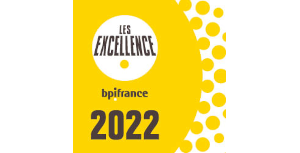On June 1, 2023, the Unified Patent Court (UPC) came into effect, introducing the Unitary Patent alongside it.
The Unified Patent Court, or UPC, is a jurisdiction offering a uniform framework for litigation and patent validity disputes, with competence over:
- European patents with unitary effect;
- European patents that have not opt-out.
Before the establishment of this new jurisdiction, a European patent holder needed to litigate in the national courts of each country where they wished to enforce their rights. Court decisions could vary between national jurisdictions. With the UPC, a patent holder can now obtain a single, rapid, and enforceable decision across all states party to the agreement on this new jurisdiction.
The UPC is composed of a first instance court with a central division and local and regional divisions established in the member states, and an appellate court based in Luxembourg.
The Central Division is based in Paris, with sections in Munich and Milan. These three Central Divisions are responsible for different classifications under the International Patent Classification as follows:
- Paris: Industrial techniques, transport (B), textiles (D), fixed constructions (E), physics (G), electricity (H), SPCs;
- Munich: Mechanical engineering (F), chemistry and metallurgy (C);
- Milan: Human necessities (A).
To date, 17 countries have ratified the Agreement on the Unified Patent Court: Austria, Belgium, Bulgaria, Denmark, Estonia, Finland, France, Germany, Italy, Latvia, Lithuania, Luxembourg, Malta, the Netherlands, Portugal, Slovenia, and Sweden.
Romania will join this new jurisdiction on September 1, 2024, becoming the 18th member state, with other ratification processes ongoing, including Ireland, which is expected to hold a referendum by the end of the year.
In one year, over 25,000 requests for unitary effect have been filed, about 250 cases have already been initiated before the various first-instance courts, and around thirty before the appellate court. Additionally, several adaptations have been made, notably the acceptance of English alongside the national language as the procedural language in each local division.
In conclusion, after its first year, the UPC and the Unitary Patent system are well on track!
Santarelli Group is available to advise you on your strategies for validating your European patents, as well as on all other aspects of the UPC and the Unitary Patent system.
By Jérémy RAOULT













